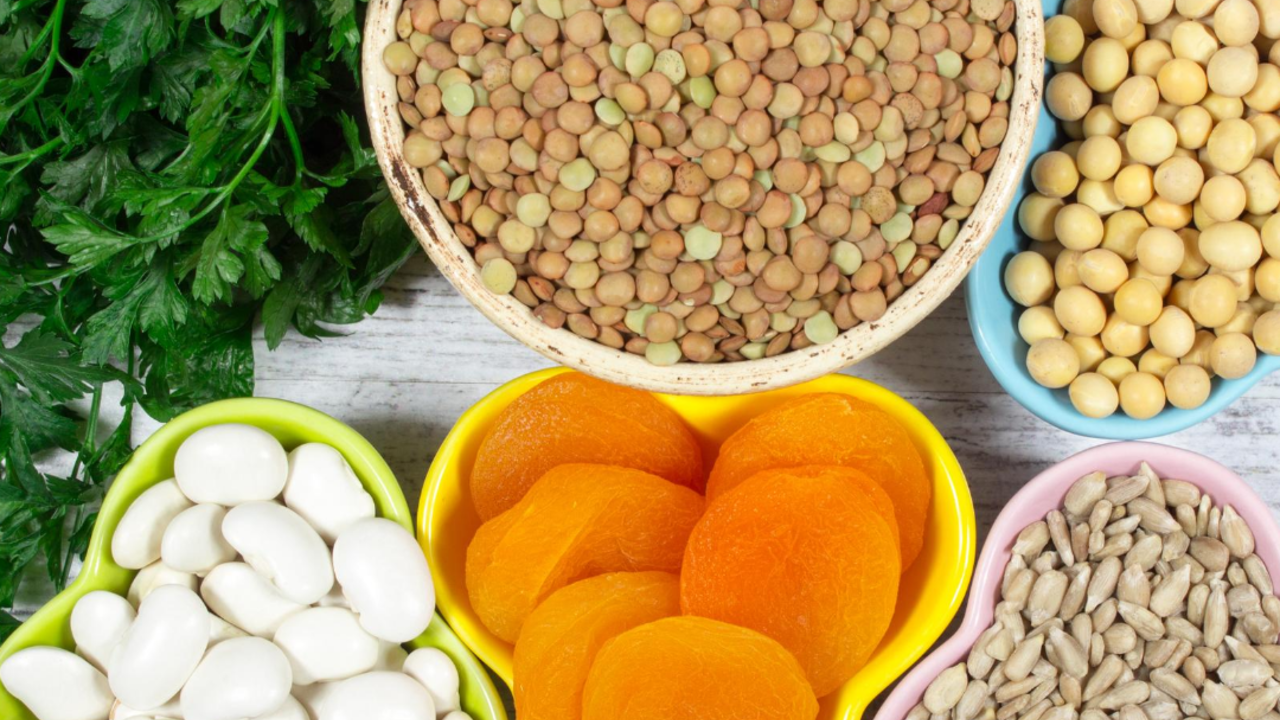The Truth About Iron

Iron is often on people’s minds when they think of transitioning to Plant Based eating.
The truth is, surveys have found vegans/vegetarians to be no more likely to be iron deficient when eating a well-planned diet.
Why do people become deficient in Iron?
Many people think that, to correct iron deficiency they just need more iron in their diets, some people even go buy over the counter iron supplements without consulting a doctor first - but that is like ladling water out of a sinking boat with holes. You must patch up those holes first, THEN you can take the water out. So get to the root cause!
Is it really that you don’t have enough in your diet or is there something else going on?
Here are the common causes I used to encounter as a family physician:
- Poor digestion and absorption - you are not what you eat - you are what you digest and absorb. You could be eating the best diet in the world, but if your gut health is poor, you cannot digest or absorb nutrients efficiently. So gut health must be assessed if you have iron deficiency, and one of the clinical manifestations of celiac disease is iron deficiency - why? because the antibodies to wheat has destroyed the brush order of the intestine, and without the brush border, nutrients cannot be absorbed. I'm not saying everyone who has an iron deficiency has celiac disease - I am saying that if you have an iron deficiency, ask your physician to assess your GI health, food allergies and intolerances.
- Blood loss - in women, heavy periods is a big cause of iron deficiency. This should be addressed before/at same time as increasing the iron. The other areas include GI tract, or occult blood loss in other organs. (There are also other causes like chronic diseases and haemoglobinopathjes...)
Now that I emphasized the importance of getting to the root cause of WHY you are iron deficient, let's look at ways to boost iron absorption.
We can start with looking at removing things that can block iron absorption: tea, coffee, MILK, medications like antacids, PPI (for reflux), and calcium supplements. If you have a habit of drinking tea/coffee with your meals, try to move it until at least 1-2 hours after your meal (or avoiding altogether if you can).
That goes for milk too. Let’s turn to how to boost absorption: whilst it is true that plant based iron is non-heme and therefore harder to absorb, lots of plant foods are packaged with vitamin C which helps the absorption. (Isn’t nature clever) The best suggestion I have would be to add more vitamin C into your meals (even if you are eating meat) - squeeze of lemon, or adding bell peppers, strawberries, cantaloupe etc into your meals.
Try to incorporate more iron rich foods into your diet.
Here are some additional ways I use to ensure we get enough iron:
- Soak your legumes - legumes contain phytates which can inhibit the absorption of nutrients like iron - soaking for 12-24 hours or sprouting will reduce the phytate levels.
- Spirulina and moringa... both are great sources of iron and if you throw the powder into a smoothie, the vitamin C will boost absorption too
- Dried apricot, dates and blackstrap molasses to sweeten my baking instead of maple syrup or sugar. These are iron-rich and so much more nutrient dense than syrups and sweeteners.
- Plenty of cumin in my cooking.
- Cooking with a cast iron pan - this is my personal opinion and not medical advice.
Please consult your own doctor for your health issues and never stop or change a medication your doctor has recommended or prescribed without consulting them first.
If this article is helpful be sure to subscribe to my newsletter and receive informative health content weekly.

